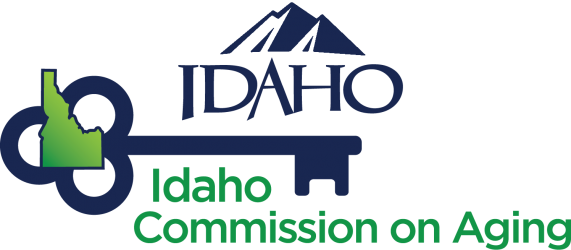Caregivers Are the Lifeline
Caregivers provide safety and comfort. We can be family, friends, volunteers or paid caregivers. We are a family caregiver if we provide one or more of the following:
- Make phone calls to check in
- Arrange for and/or drive to doctors appointments
- Help manage medications and/or provide medical care
- Help with household chores or making meals
- Help make healthcare decisions
For assistance, Idaho’s six Area Agencies on Aging (AAAs) serve caregivers across the state. The AAAs provide services, help us plan for the future, guide us to services in our local communities, and assist with self-care.
To help with any questions, below, we can find links to services and supports that are specific to Caregivers, and to the right are Quick Tips that are updated periodically.
Quick Tips
The Idaho Caregiver Alliance mission is to advance the well-being of caregivers and improve access to quality supports and resources.
See Idahocaregiveralliance.com for more information.
The mmLearn.org website includes a variety of videos from which caregivers and families can learn. Caregiving Training Videos by mmLearn.org topics include: Parkinson’s Disease: Can We Improve Function; Powers of Attorney: Caregiver Superpowers; Employed and Caring for a Loved One; Chronic Wound Care Case Studies; Hoarding and Elders, and many more.
- Navigating Dementia Workshop (Idaho)
- Care Plan
- Next Steps in Care for Family Caregivers
- Idaho Advance Directive Registry Services
- AARP’s Family Caregiver Guide
- Being an Effective Caregiver
- Managing Someone Else’s Money
- Take Care: A Guide for Family Caregivers
- Being an effective caregiver of someone with mental illness
- Home care resources for disabled veterans
- Falls Prevention Conversation Guide for Caregivers (English)
- Falls Prevention Conversation Guide for Caregivers (Spanish)
- Eleven Things You Should Never Say to a Caregiver
- ABCs of Respite
- Our Family, Our Way — how to conduct successful family meetings
- ADLs and IADLs in our Aging Parents and Why They Matter with Memory Loss
- Three Apps to Help Caregivers Get Organized
Building system to support the knowledge & skills necessary to address dementia
Providing critical periods of rest for caregivers
Offering assistance to those who assist others

